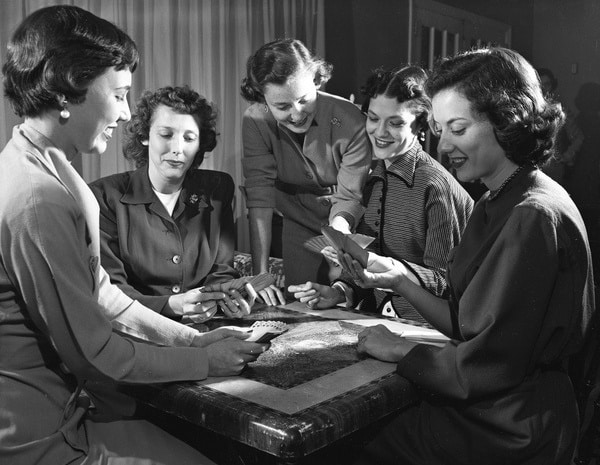14 Academic Conference Mistakes and How To Avoid Them
Academic conferences are an essential part of academia. They remain the primary means for academics to exchange ideas, share new knowledge, discuss their original research with peers, find grants opportunities and so much more.
Academic conferences are here to stay. Having said that, they are are in need of a serious shake up to ensure they continue to be of value for all involved. It’s important that academic conference planners proactively look at improving the attendee experience and cut out mistakes in planning and execution.
Those organising academic conferences don’t always attend that many events outside of academia. This means that they are prone to committing event sins that have long since been banished from other types of conferences. There are also plenty of opportunities to adapt innovative approaches from the wider event industry to enhance academic conferences.
At 20 Bedford Way, we’ve previously created a comprehensive guide on how to organise an academic conference based on our experiences as a busy academic conference venue in London. In this article, we focus on the mistakes we see being made and ways to avoid them.
1. Not allowing enough time for planning and organising
The timeframes around an academic conference are often long with several distinct phases. This means you want to start your planning well in advance and set aside plenty of time for organising.
Ultimately, you want to take steps so you can avoid feeling under pressure and having to rush key elements of your conference. Start by putting out a call for papers as soon as possible and setting a date early on in the process.
2. Too general or too niche conferences
General conferences are often seen as a waste of time by academics. With a broad topic area, you risk putting people off. On the flipside to this, if you go too narrow with your conference focus then you limit the number of people that it will be relevant to or that will find it engaging.
You need to consider the subfield that you will target, the research in this space and the potential speakers. Striking the right balance is essential so do your research.
3. Failing to deliver what researchers & attendees want
As with any event, you want to do all that you can to make sure the attendees are engaged throughout. The best way to do this is to carefully consider the needs of senior academics, researchers and students at all points of your planning. Remember you still want people to attend and benefit from the conference even if they aren’t presenting their research.
Academic conferences provide the fastest ‘write to publish’ timeline for original research and are all about getting very fast relevant feedback on preliminary results. You want to help facilitate this process as much as possible. Question and answer sessions should therefore follow on from every single paper immediately after the presentation.
Try and gather feedback into what areas of research, particular results or emerging themes that your peers are interested in. This information can be hugely beneficial in shaping your conference.

Image of Vacuum Instrumentation Research via Nasa on Flickr
4. Too many sessions
Scheduling in too many sessions is a sure-fire way to see your academic conference fail to deliver. You need to strike a balance between quantity and quality. Remember that Q&A sessions will follow all talks as they provide that all- important peer review.
Some academic conferences suffer because of a lack of consideration on the format of the conference and the running order. How do talks relate to each other? Are you going to have panel discussions? When is the best time for breaks? Click through to read more on academic conference formats and what is best for your event.
It is vitally important that researchers are given the opportunity to network as much as possible. Having too many sessions in a day will eat into this time too.
5. Having sessions that fail to engage
You need to keep the sessions as short as possible, while still allowing for the researchers to present their papers. When sessions are too long, you risk boring the attendees.
You should also look at ways to make the sessions more engaging. Technology can be a great help, offering innovative ways to increase participation.
6. Not providing enough details on the papers
You want to share with your attendees a programme that contains accurate and informative descriptions of the papers being presented. This allows attendees to pick and choose the sessions that are relevant and interest them the most.
Many attendees will spend time reviewing your programme, finding everything that is directly related to their area of research. Once they have established these essential talks, they will then look at other papers of interest.
By giving attendees the chance to identify the talks that will benefit them the most early on and plan their days according, you help them get the most out of the conference.
7. Picking the wrong date
Choosing the right date for your academic conference is so important. You want to guarantee that the majority of your target audience are able to attend. This means researching when other conferences and events are taking place to avoid clashes as well as avoiding peak times in the academic calendar and holiday times.
We recommend aiming for a date that falls within term-time. You will then want to check the availability of your keynote speakers and researchers for these dates.
8. Not making networking and social elements a priority
Academic conferences can be lonely places and even, dare we say it, boring if you have no one to speak to. Attendees are desperate to meet and connect with academics and researchers with similar interests – after all, this is one of the main draws of an academic conference.
One of the most common mistakes we see is organisers not providing enough breakout and networking sessions. Be sure to schedule in plenty of time for networking over the course of your conference.
You should also do all you can to encourage networking and introduce social elements to the conference. By planning in lots of breaks and creating a relaxed informal atmosphere, you can encourage this crucial element.
We know that academic conferences provide great opportunities for successful researchers and academics to catch up with old friends, classmates and colleagues. You should also consider junior researchers attending their first conference and how you can help them meet new people and network with their peers.
One way is to create a relaxing social environment where it is easy for attendees to talk. You could also organise an informal social meet-up in a pub to help attendees make connections and discuss their research outside of the main conference timetable.
As a conference organiser, you will know the speakers and attendees better than most. You should help out with networking by making introductions between people with shared interests.

Women playing bridge in Tallahassee, Florida Memories on Flickr.
9. Failing to organise workshops
In addition to the presentations of papers, you should strongly consider organising workshops. These can fulfil a range of different purposes, spanning everything from discussions to teaching and learning sessions. They are usually appended onto the main conference and made available to smaller numbers of participants. It is possible to have more than one workshop that runs alongside the main conference.
You can arrange them as planning sessions on the direction of a particular field, discussions on future research, a chance for industries and academics to meet, or researchers to receive specialist training. Although clear topics and objectives are important, the sessions don’t need to be precisely structured, allowing for more open discussion and debate.
Academic conference workshops should take no longer than an afternoon. Remember to describe them accurately so attendees know what to expect and publicise them widely.
They are great for researchers who want to share learnings, discuss results of preliminary studies or acquire new skills related to their research areas. Workshops really add value to attendees, joining the dots between the research and the wider world as well as providing direction for the future of the field.
10. Uninspiring speakers
Having a researcher simply stand up and read a paper from the page risks alienating the audience, even sending them into a slumber. You have to enable and maybe even coach the researcher to some extent to help them make the presentations more engaging. Facilitate them by encouraging the use of technology and utilising social media for engagement. You can also share more general good practice tips by email prior to the event.
If the research being presented falls outside of the area of interest for an attendee, it can be even harder to keep them engaged. Read our tips on engaging public speaking with a little help from Bob Dylan to help combat this issue.
11. A lack of diversity
Academic conferences are frequently criticised for a lack of diversity. This can risk ostracising people from under-represented groups and even make them feel uncomfortable if they do attend.
Inclusion and diversity is therefore key to a truly successful academic conference. You want to provide a platform for people regardless of their gender, sexuality, race, and religion.
As an organiser, the first thing you should do is invite a variety of speakers from all backgrounds where possible. A diverse roster of high quality speakers should be your primary goal. You should also take steps to ensure that nobody finds themselves marginalised at the conference.
It is common for informal gatherings in pubs, cafés and restaurants to happen once the day’s sessions are over. These informal gatherings can end up excluding certain demographics, such as all male groups meeting up in the evening. You need to be mindful of this and consider setting up your own post-conference get-togethers that are open and actively inclusive.
There are also reports that emerge from academic conferences of women receiving unwanted social and sexual attention. This can even involve senior academics. You should again be aware of this and communicate a zero tolerance approach.
Another issue faced by women at conferences is that male academics in the audience may interrupt their talks or even answer questions on behalf of the speaker. They can also find themselves ignored during discussions and panels. You may wish to think about ways that this can be avoided or how to deal with it if it does occur at your conference.
12. An unsuitable venue
The venue for your academic conference is an important factor in its overall success. There are a number of elements you should consider when choosing a venue.
Location is very important. You want fantastic transport connectivity so that attendees can easily get to the venue from across the UK and further afield. It is highly recommended that the academic conference venue is also located in an area that offers attendees the opportunity to explore a new city or area.
Consider finding somewhere with restaurants, bars, and cultural and tourist spots nearby. 20 Bedford Way benefits from being in the heart of Bloomsbury, a stone’s throw from many of London’s leading university colleges.
There are numerous facilities that you should expect from your academic conference venue. These include a suitable conference room, breakout spaces, stages, green rooms, A/V equipment and an in-house conference support team to help you with the running of the event.
When it comes to technical requirements, you should ensure that the following are available and included in the price:
- Robust, fast Wi-Fi that can cope with the number of attendees
- A/V – audio-visual equipment including microphones
- Screens, projectors
13. Failing to promote your academic conference
You need to actively promote your conference in order to attract attendees. It’s all too easy for academic organisers to focus on the call for and review of papers, and arranging the sessions whilst forgetting to publicise the event.
There are a number of channels and platforms that can all be used to generate awareness and interest.
These include the following:
- Social Media – consider the best networks to use – usually LinkedIn and Twitter. Share information about your Call for Papers and the programme. Encourage your team and speakers to share conference information too to leverage their networks.
- Website – share details on your own website as well as other relevant sites in your field
- Conference announcement site – put details on sites such as Conferize and Conference Alerts
- Digital assets and videos – you can create some strong visual assets to use on social media and elsewhere online to help promote your conference. A short compelling video highlighting the conference’s programme can be compelling.
- Existing Contacts – spread the word to your existing network of colleagues
- Academic institute – your institute should be able to give access to their internal channels, including getting academic departments to put up information on notice boards; including newsletters
- Emails – send out an email to all relevant parties. You can design, schedule, send and monitor the success of campaigns with programmes like Mailchimp
- Email signature – you can edit your own email signature to feature a brief description of the conference and a link to a relevant URL.
- Blog – writing a short post for your website can be another effective way of drawing attention to your conference.
Click through for more information on promoting academic conferences.
14. Failing to embrace technology
Using new technologies can improve attendance, increase engagement on the day and help with the follow up post-conference. Technology should be integrated at all levels of your conference, but you need to make sure it is intuitive or be available to provide tuition. You can read our article on Event Technology for further insights.
- Video conferencing / live streaming – it is not always possible for people to attend your event, especially when they are based overseas. You may want to consider live streaming the talks or recording them to host online at a later date.
- Interactive – asking questions to speakers and providing feedback on their research is a vital part of academic conferencing – technology is available now to make this easier and more seamless.
- Slideshare – researchers can share key information from their talks using Slideshare and other similar platforms.
ACADEMIC CONFERENCE VENUE LONDON
20 Bedford Way is an academic conference venue in central London. We are very experienced at hosting academic conferences and making sure all your needs are met.
Logan Hall is perfectly suited as the main conference space, accommodating 910 people but we also have a number of smaller spaces ideal for workshops and breakout spaces to facilitate networking amongst attendees. We also have A/V technicians and dedicated conference staff to ensure your conference is a success.
If you are interested in holding an academic conference in Bloomsbury contact us on 020 7612 6143 or email us.
Header image via Goshen College, Library, 1981-82 on Flickr.




